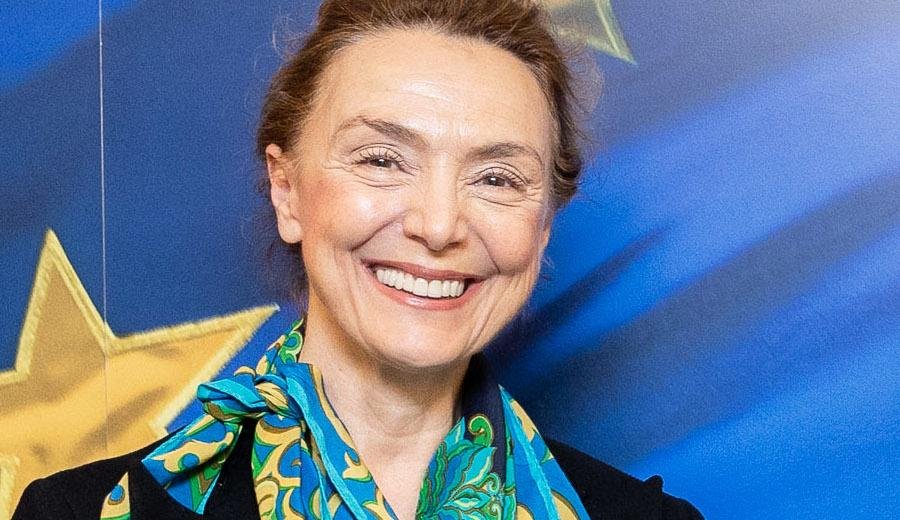10 years of the Istanbul Convention: Council of Europe launches new gender equality strategy

Written by NADJA editors
Photo: Marija Pejčinović Burić, Secretary General of the Council of Europe. European Union / CC BY 4.0

The Council of Europe has launched a new Gender Equality Strategy for 2024 – 2029 to mark the 10th anniversary of the Istanbul Convention, the first legally binding international framework to prevent violence against women and girls.
The Council’s human rights treaty was opened for signature on 11 May 2011, in Istanbul, Turkey, to prevent violence, protect victims and end the impunity of perpetrators. It came into force three years later, and was ratified by the European Union on 28 June 2023.
“The Istanbul Convention is a landmark treaty in the battle to end violence against women and domestic violence,” Secretary General Marija Pejčinović Burić said at a conference on gender equality this week in Strasbourg, France. “Violence that scars, intimidates, and inhibits its victims, undermining their freedom, security, and potential. Until that battle is won, and it must be won, true gender equality cannot be achieved.”
The Convention recognises that stalking, sexual harassment, sexual violence, physical, and psychological abuse at the hands of intimate partners, forced marriage, and forced sterilisation are deeply traumatising acts of violence that mainly affect women, and it is the obligation of the state to address these.
As of today, 38 countries have signed and ratified the convention – after Turkey became the first and only country to withdraw in 2021. The Turkish government said the Convention threatens “family values” and “normalises homosexuality”, claims that have been echoed by several governments, including Poland and Hungary who have signed but have yet to ratify it.
The Convention has led to significant improvements, including the establishment of 24-hour helplines for survivors of domestic violence in Finland, and the introduction of consent-based definitions of rape in Iceland, Sweden, Greece, Croatia, Malta, Denmark and Slovenia since 2018.
For its 10th anniversary, the Council renewed its commitment to gender equality with the launch of the new strategy, which aims to achieve gender mainstreaming and includes an intersectional approach in all its policies. If focuses on six strategic areas:
- Preventing and combating gender stereotypes and sexism, by implementing campaigns, and researching and developing guidelines on sexism, gender stereotypes, and sex- and gender-based discrimination. It also aims to identify, compile, and disseminate good practices to eradicate gender stereotypes in education and the labour market, promoting the equal sharing of unpaid care and domestic work, and addressing underrepresentation in fields such as artificial intelligence, information technologies, and STEM.
- Preventing and combating violence against women and girls by working with feminist civil society organisations to understand specific forms of violence faced by women to recommend an intersectional and human rights-based approach to address the root causes of gender inequalities. It will also support member states in developing and strengthening legislation on sexual violence based on the concept of lack of consent, and launching awareness campaigns on consent, and create information tools on the role of men and boys in preventing violence.
- Ensuring equal access to justice for women and girls by preventing the impact of gender stereotyping on judicial decisions through research, training, education, and the promotion of good practices. It will also monitor court decisions to raise awareness and enhance legal professionals’ understanding of women’s access to justice, and develop information tools to promote justice access for women, especially those in vulnerable situations, such as survivors of gender-based violence.
- Achieving a balanced participation of women and men in political and public life by tackling the root causes of socio-economic inequality – such as unequal access to education, employment, housing, and healthcare, addressing unpaid care, and revising laws limiting access to sexual and reproductive health and rights.
- Empowering women and promoting gender equality amid global challenges by sharing best practices on the impact of climate change on women, supporting women’s rights in crisis management and launching awareness campaigns to counter anti-gender rhetoric and fostering a new, inclusive narrative.
- Achieving gender mainstreaming with an intersectional approach by advancing mainstreaming gender equality in its internal policies – including budgets, tools, and progress indicators.
“Gender equality is a fundamental human right. It is not just a women’s issue; it is a human issue that affects us all,” said Lithuania’s Vice Minister of Social Security and Labour, Justina Jakštienė, at the opening of the ‘United around gender equality: Making space for women and girls’ conference. “As the title of this conference reveals, it should unite us rather than divide us. The spaces we create for women and girls in our societies reflect our values and our vision for the future. These spaces should not be mere tokens of inclusion but platforms for empowerment, where every voice is heard, and every potential is realised.”

READ MORE
